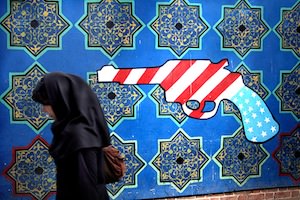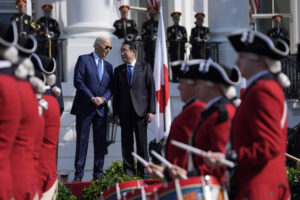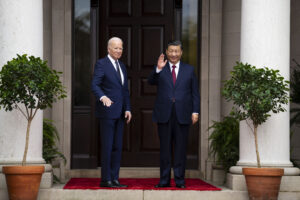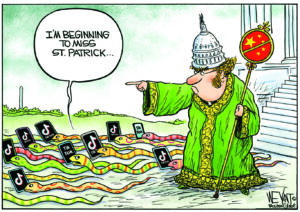U.S. Tightens Sanctions on Iran
The West escalated the economic war against Tehran on Wednesday, imposing a new set of restrictions intended to deter the country’s nuclear ambitions by forcing it into what amounts to a form of barter trade for oil, The New York Times reports.
The West escalated the economic war against Tehran on Wednesday, imposing a new set of restrictions intended to deter the country’s nuclear ambitions by forcing it into what amounts to a form of barter trade for oil, The New York Times reports.
The U.S. did this by deciding that payments for oil deliveries can no longer be sent to accounts inside Iran. The nation’s oil revenue is “the country’s economic lifeblood.” But sanctions, which have cut off international financial transactions, cost the country $4 billion to $8 billion monthly in European oil contracts, doubled prices and crashed the currency, have so far failed to “set off price riots or serious opposition to the Iranian government.”
The sanctions on financial transactions have forced the country to engage in undesirable oil-for-goods barter trade with its biggest customers, China and India, whose imports are prominently displayed in stores and pharmacies across the country.
The U.S. is also deciding who gets to continue buying Iranian oil and how. From now on, China, Japan, South Korea and India, among others, must deposit their diminishing oil deliveries into local bank accounts, which Iran can use only to buy goods within that country. The rule is intended to keep money from moving into Iran.
— Posted by Alexander Reed Kelly.
Your support matters…The New York Times:
The outlines of a nuclear deal have been clear for months: an Iranian agreement to limit the number of centrifuges that produce uranium, a cap on the amount of fuel in Iranian hands, and an agreement to ship its most potent stockpiles — the stuff that can be quickly converted to bomb fuel — out of the country. It would also have to agree to expose its history of nuclear work, including any on weapons technology, which it has refused to show international inspectors. In return, Iran would get an acknowledgment that it has a right to peaceful nuclear enrichment, and a gradual lifting of the sanctions. The Iranians have insisted that the sanctions be lifted first.
Instead, Iran announced last week that it would deploy a new generation of centrifuges, four to six times as powerful as the current generation. And while the United States, its European partners and Russia and China agreed to resume talks with the Iranians at the end of the month, administration officials have low expectations for the results.
“The Iranians didn’t want to be in these talks, and it’s hard to imagine any kind of a deal before their elections” in June, said one senior official, referring to the coming presidential vote. “Maybe if they had to put up with two more years of pain.”
Independent journalism is under threat and overshadowed by heavily funded mainstream media.
You can help level the playing field. Become a member.
Your tax-deductible contribution keeps us digging beneath the headlines to give you thought-provoking, investigative reporting and analysis that unearths what's really happening- without compromise.
Give today to support our courageous, independent journalists.









You need to be a supporter to comment.
There are currently no responses to this article.
Be the first to respond.